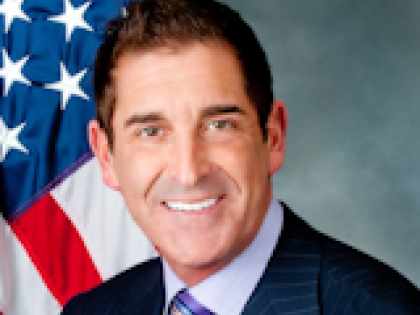
Klein Proposes To Convert Life Insurance Into Long Term Care Cash To Save State $1.1 Billion In Medicaid Monies
Jeffrey D. Klein
November 23, 2008
Your Money or Your Life
Klein Releases Report on Long Term Care Crisis
Proposes to Convert Life Insurance into Long Term Care Cash to Save State $1.1 Billion in Medicaid Monies
NEW YORK- Senator and Deputy Minority Leader Jeffrey D. Klein released a report and proposal which would save New York State an estimated $1.1 billion in Medicaid dollars over five years. The report, Your Money or Your Life, found that long term care insurance in New York is prohibitively expensive and often insufficient to cover the acutal cost of care. For many individuals this drives up reliance on Medicaid. Klein proposed enabling policy holders to accelerate the death benefit of their life insurance for long-term care which would allow New Yorkers to tap into an addition reserve of funding. Klein's proposal comes on the heels of a special session of the legislature last week where Governor David Paterson urged legislators to close the state's $47 billion dollar deficit.
As the baby boomers age, over 2 million New Yorkers will need services ranging from home health care, to nursing home care by 2015. However, most New Yorkers can't afford long term care insurance, and are forced to spend down their savings and go broke to qualify for Medicaid, which accounts for 18% of the state's budget, or $23.4 billion. For fiscal year 2008-09, Medicaid spending on nursing home and home care is projected to be $12.5 billion, or 27% of total Medicaid expenditures.
According to Klein's report, the average daily benefit for nursing home coverage with long term care is only $177, falling short of the $263 average statewide cost of care ($308 in New York City). The average premium in 2007 was $2,862.
According to the state Department of Health, over 3.2 million New Yorkers (or 17% of the state's population) are over the age of 60, while 44 % of seniors will need some form of long-term care, and 28 % of woman and 11% of men will need long-term care for more than 5 years. However, as of 2006 only 400,000 New Yorkers owned long term care insurance, while a whopping 9 million had life insurance. In addition, the proposal would allow people to take greater advantage of their resources and have more options, rather than simply spending down their savings. In 2006 alone, New Yorkers had $2 trillion in death benefit coverage, and received $30 billion from life insurers in the form of death benefits and other forms of payment.
"Currently, New York State spends $46 billion dollars on Medicaid, which is the primary source of long-term care funding. With nearly $1 in $5 of the budget already spent on Medicaid, we can ill afford to further burden taxpayers with the long-term care expenses needed by the growing senior population. In these tough fiscal times we need creative and cost saving measures to address the economic reality." said Senator Klein
Klein's report further found that only 10 companies of the 135 life insurance companies licensed to transact business in New York offer accelerated death benefits for riders for long-term care. Upon request, an insurance company developed a model based on Klein's proposal, revealing that the proposal is viable and not unduly burdensome to the industry.
"The high cost of long-term care costs the state billions of dollars, and forces seniors and others facing serious health issues to bankrupt themselves in order to obtain the care they need. By allowing those facing long-term healthcare needs to access their life insurance investments, we can achieve a win-win by reducing state expenditures and improving access to healthcare," said Senator Liz Krueger
"Seniors who need long term care shouldn't be forced to go into poverty in order to get the care they need and deserve. We have a responsibility to ensure that our older generations are well cared for. I commend my colleague, Senator Klein, for this creative approach to long-term care, which will also save taxpayers millions of dollars," added Senator Diane Savino.
Share this Article or Press Release
Newsroom
Go to Newsroom